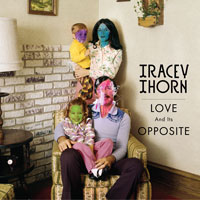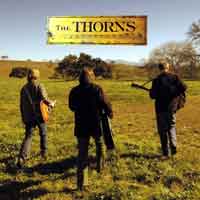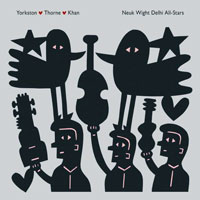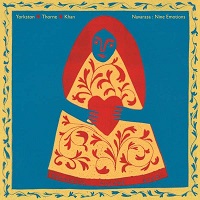Die Stimme von Everything But The Girl. Noch früher mal Marine Girls, tolle Band. Dies ist Traceys drittes Soloalbum, das erste, „A Distance Shore“ erschien 1982, das zweite erst vor drei Jahren. Schon immer klang sie sehr britisch, ob sie nun New Wave, Folk, Pop, Cocktail-Jazz oder Drum’n’Bass sang. Und immer erkennt man ihre Stimme schon beim ersten Ton, sie hat so etwas Weiches und Herzerwärmendes. Auf ihr neues Album habe ich mich sehr gefreut und meine Hoffnungen werden mehr als erfüllt. Zusammen mit Producer Ewan Pearson (The Rapture) gelingt ihr ein wunderschönes, reifes Album zwischen Singer/Songwritertum und Pop. Die illustren Gäste wie Jens Lekman und Hot Chip fallen kaum auf, auch nicht das Lee Hazlewood-Cover "Come On Home To Me“, denn dies ist die große Tracey Thorn-Show. Nicht im Sinn von inszenierter Aufgeblasenheit, sondern ganz im Gegenteil: allein durch ihre stimmliche Präsenz und Persönlichkeit, sowie durch ihr betörendes Songwriting. Die Songs gehen schlicht zu Herzen, on nun balladesk-schwermütig oder zwischendurch auch mal recht poppig. Ein umwerfendes Album voller Songs für die Ewigkeit. Ja doch, ich bin ganz hingerissen. Kongenial fällt auch die Ausstattung meines Vinyls aus: wunderschön eigenwillig gestaltet, dazu im eigentlich längst ausgestorbenen Gatefold-Cover.
(Joe Whirlypop, Glitterhouse)
After the eight-year recording silence which lasted from the start of Everything But the Girl's indefinite hiatus until Tracey Thorn's triumphant re-emergence as a solo artist on 2007's Out of the Woods, the singer took only three years to return with a follow-up. Love and Its Opposite finds Thorn again working with Berlin-based house producer Ewan Pearson, but it effectively jettisons its predecessor's scintillating electro-pop for a more subdued chamber-folk style akin to that album's quieter moments; it's easily Thorn's least electronic work since EBtG's dramatic danceward shift in the mid-'90s. Then as now, the change of musical scenery hardly disrupts the caliber and sophistication of Thorn's songcraft or the power of her inimitable voice, which remains as gloriously warm as ever. Given that mood and maturity have always been her hallmarks, aging gracefully is scarcely even a concern: now that she's in a position to deliver a set of songs about the complexities of, in her phrase, "real life after forty," it feels utterly natural, a continuation of the emotional navigations she's spent her career documenting with characteristic insight and sensitivity. Stately waltz "Oh, The Divorces!" observes the seemingly inexorable progression of marriages dissolving around her with a creeping unease barely masked by its Sondheim-worthy elegance and verbal wit ("he was a charmer/I wish him bad karma"), and is deftly juxtaposed with the childhood nostalgia of "Long White Dress," concerning a life-long dread of weddings. (Perhaps tellingly, Thorn and EBtG-mate Ben Watt married in 2009, after 28 years of partnership.) On a lighter note, maybe, the bouncy "Hormones" comments breezily on menopause (the singer's) and adolescence (her daughters'), while "Singles Bar" is a wry treatment of aging-singles scenes and all their attendant hope and desperation ("can you smell the fear?"), in a tone that could be bleak or comical or both. Throughout, but especially in her poignant meditations on domestic relationships -- the achingly uncertain "Why Does the Wind" (given a nimble funk backing by Hot Chip bassist Al Doyle and Invisible stickman Leo Taylor), Lee Hazlewood's brooding "C'mon Home to Me" (sung with Jens Lekman), and the quietly self-scrutinizing "Late in the Afternoon" -- Thorn's romanticism is tempered by a hard-earned sense, approached with a mixture of comfort and resignation, that love and its opposite -- fear, perhaps, of loneliness or abandonment or simply death -- aren't truly opposed, but are necessary working complements, each enabling the possibility of the other.
(by K. Ross Hoffman, All Music Guide)

 Plattentipp
Plattentipp 





